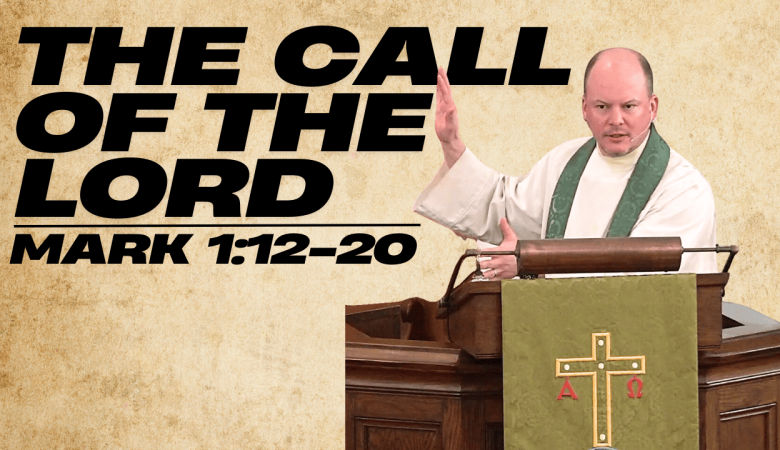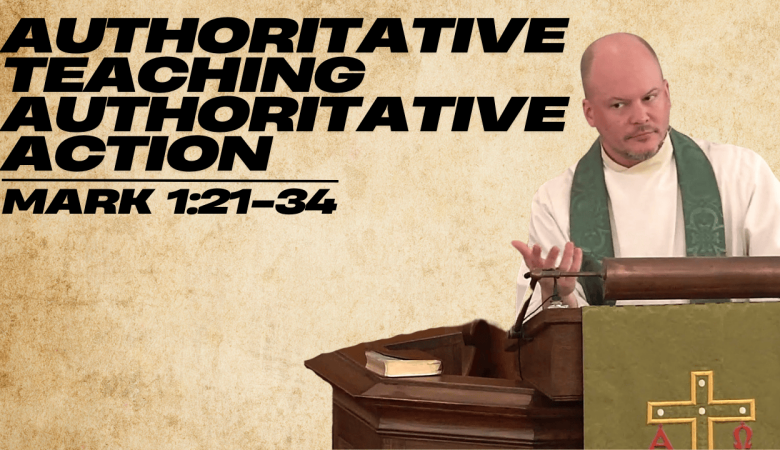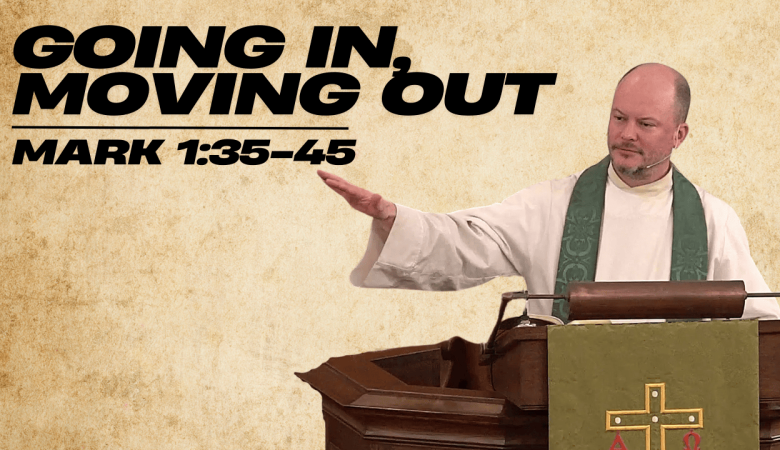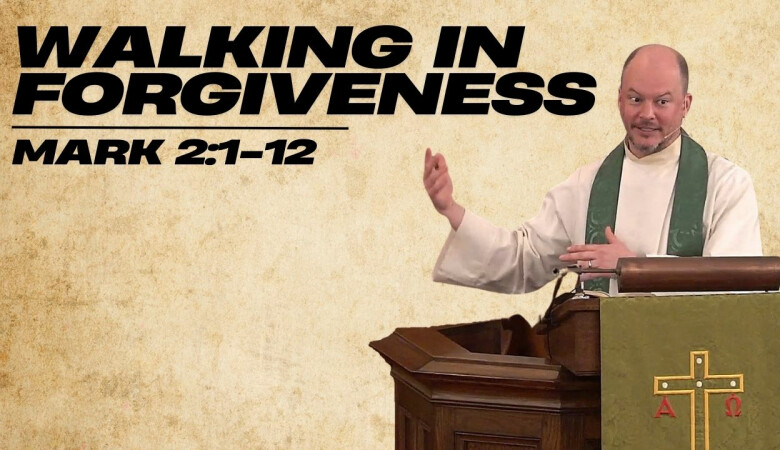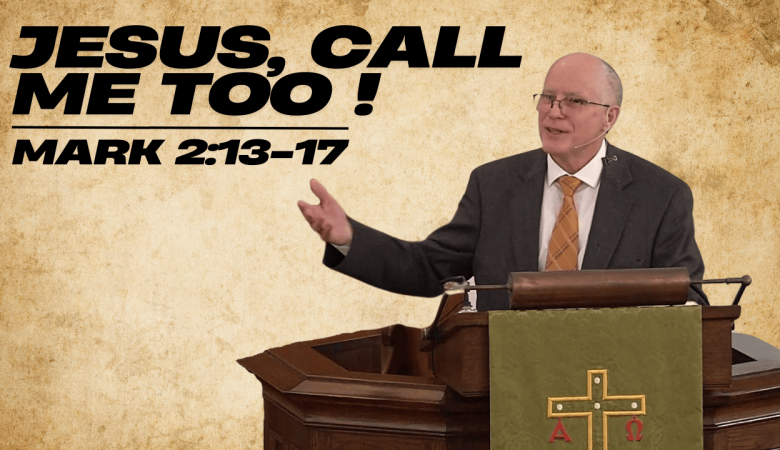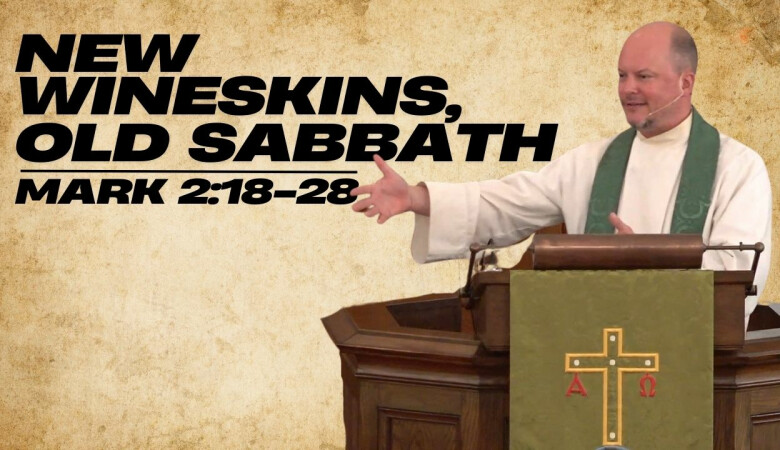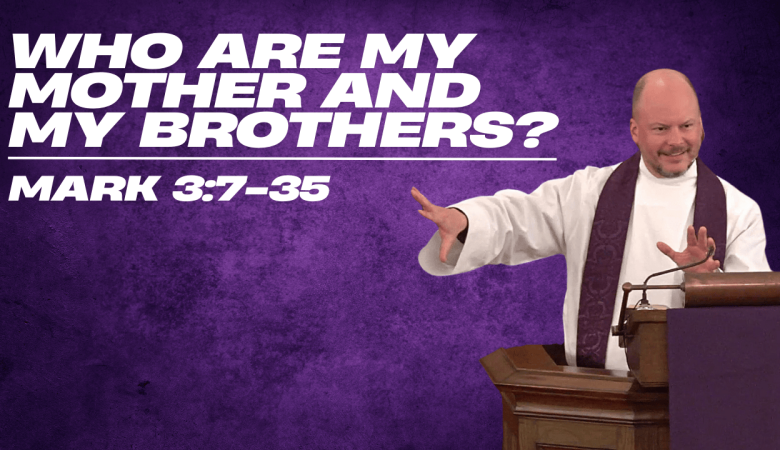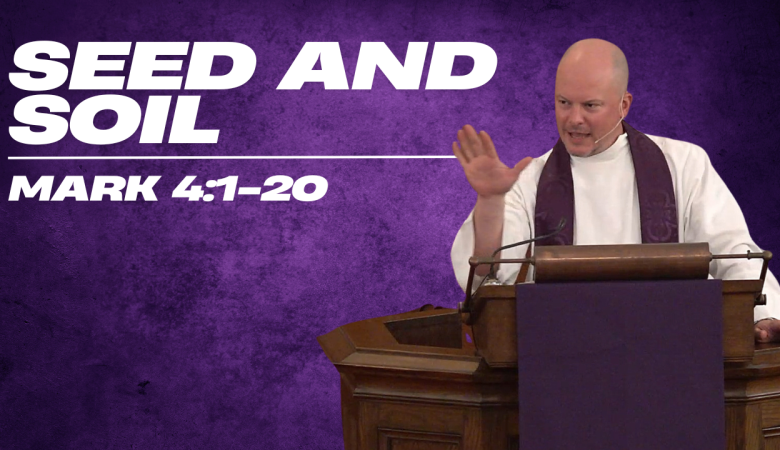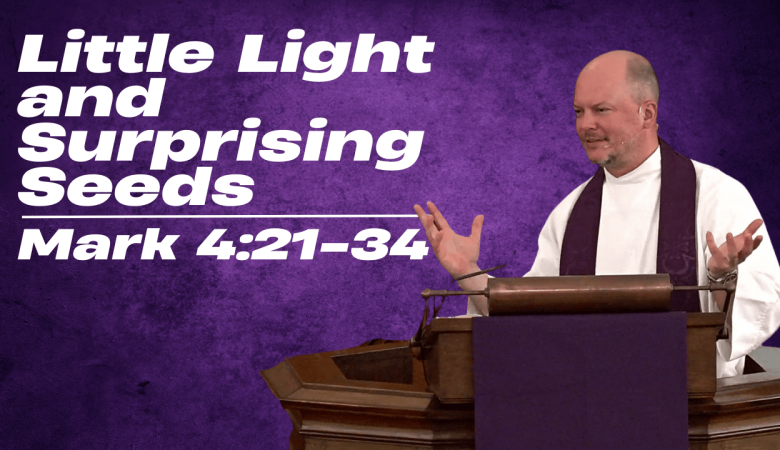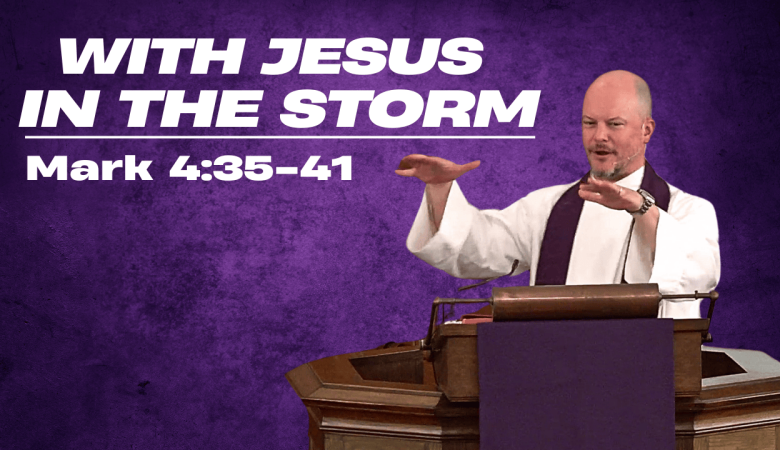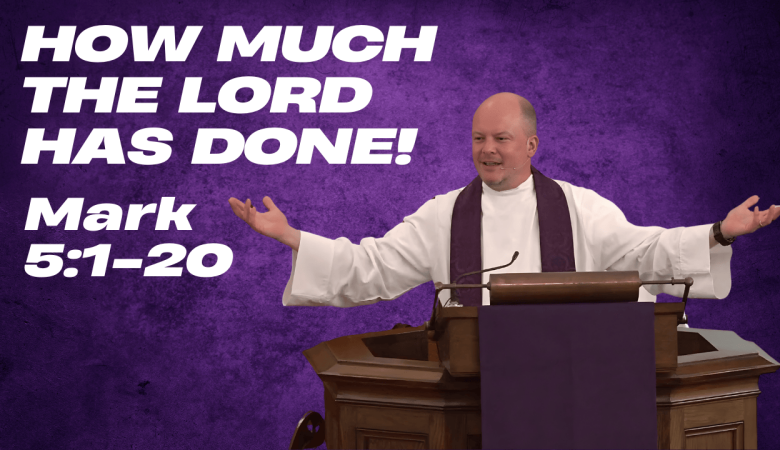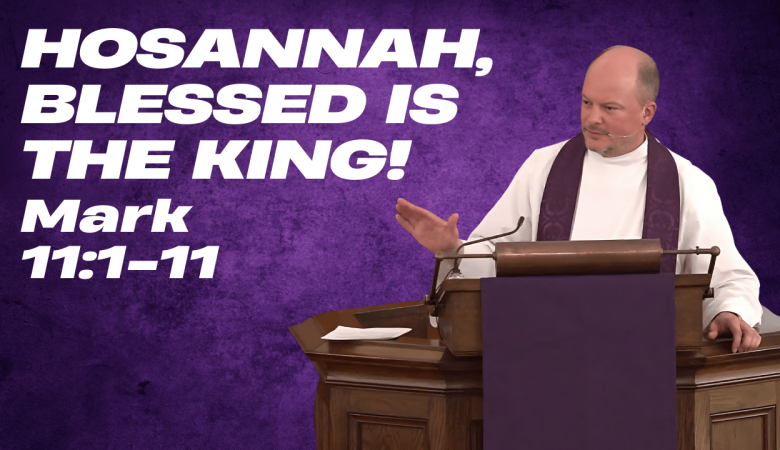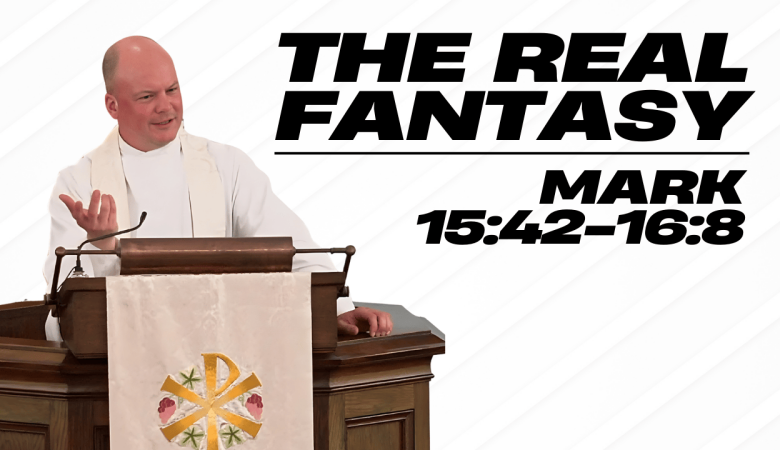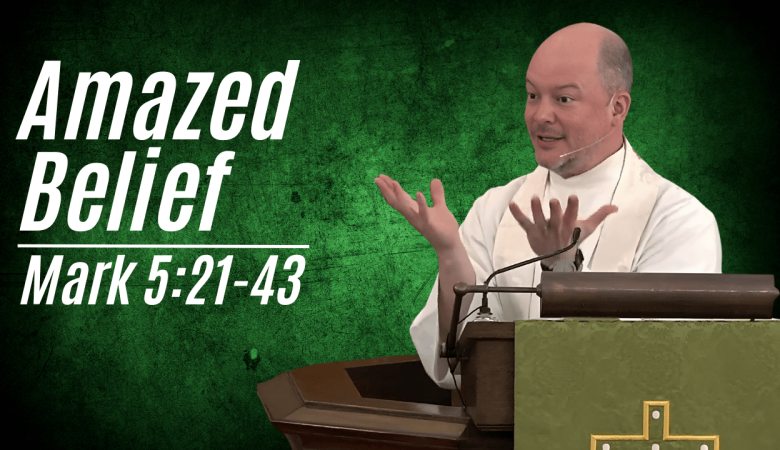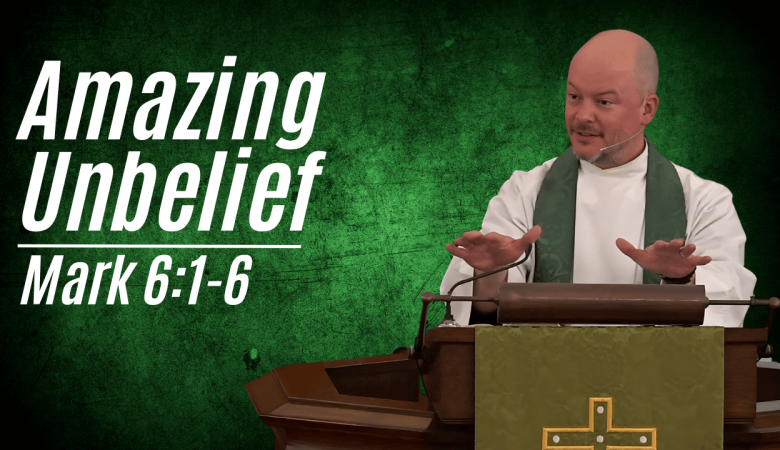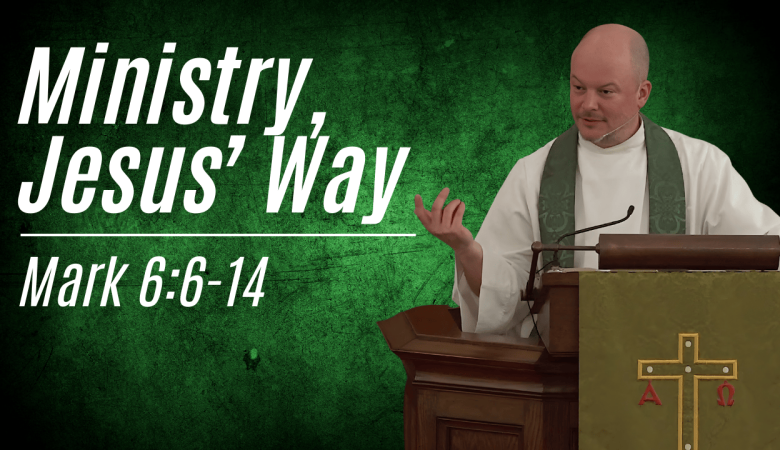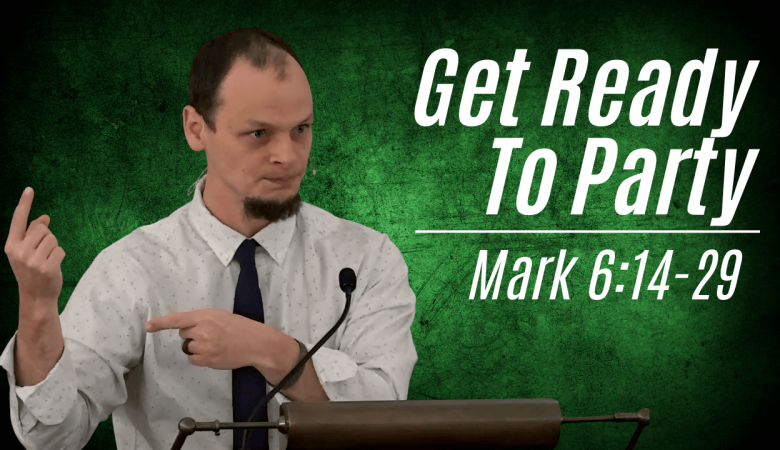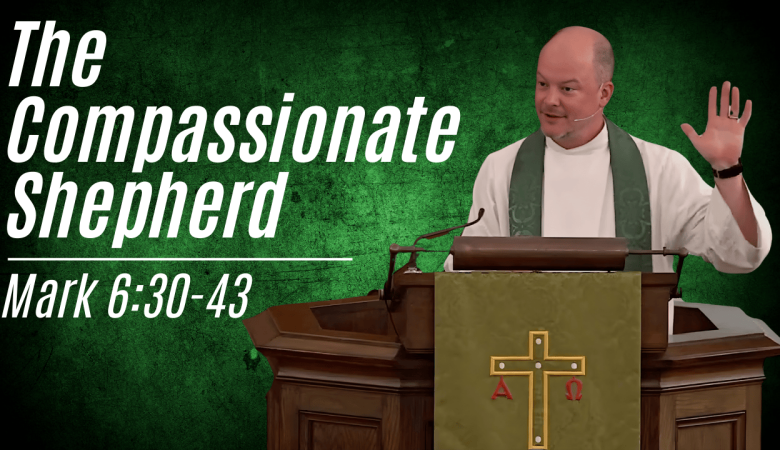Series: The Gospel of Mark
The Baptism of Our Lord
January 12, 2025 | Peter Rowan
Passage: Mark 1:1-11
Summary
Mark's gospel is fast. He jumps right into what is central to the good news, the gospel, of Jesus. John the Baptist comes, and he is great, but his whole message is one of preparation for the greater one who would come after, Jesus. And everything John says has to do with this comparison of just how great Jesus is. We also see this through the writer of the gospel, Mark, and the apostle who was behind Mark's writing, Peter. Then we quickly move to Jesus' baptism by John and we see here the other central idea of the gospel, that this great one who has come humbles himself to associate and own the sins of humanity. Here is good news!
Transcript
Ok, we are starting this morning a series in the gospel of Mark. We actually spent the last nine Epiphany seasons and many Lenten season in the gospel of Luke, but ever year we want to sit in these texts of the gospels and we do this in this time in the church calendar that focuses us on the revelation of God in Jesus Christ. If there are central books of the Bible for Christians, if there are any that we most hold dear, then they are the four gospels, Matthew, Mark, Luke and John that tell us of the life of our Lord, his birth and ministry, his death and resurrection. These are the biographies, the life-writings, the life-stories of Jesus, the Messiah, the Christ. But they are unlike our modern biographies with lots of dates and ages and specifics about education, employment and all of the rest. We are not told what Jesus looked like, what he sounded like. We only have one story in all four of the gospels from the birth of Jesus up to when he begins his earthly ministry at the age of 30. What kind of biography would do that? In the ancient world they knew, just as we know now, how formative those years are in anyone’s life. The fact is that the gospels really are a category of biography all unto themselves. They don’t even really have an ancient parallel. Of course there are other texts that we call gospels, but none compare to these four.
You probably noticed, as Chuck read for us the beginning of this gospel of Mark how there was nothing of what we have been celebrating this past month. There is no story about Jesus’ parents, Mary and Joseph. Nothing about John’s parents, Elizabeth and Zachariah, Anna and Simeon. Nothing about shepherds and wise men and all of the rest. No, this biography doesn’t even contain any of that.
Mark jumps right in to what he wants to say. Mark is fast. It is by far the shortest of the gospels. And it is packed. It is packed with the core message of our faith. Jesus - God among us, god to save us. The Kingdom of God - Jesus freeing us from oppression. Discipleship - the life of faith, following in the way of Jesus. The cross - the suffering king. The resurrection and those who bear witness to it.
We call these four gospels, “The gospels” because, right here in Mark 1:1 mark tells us that is what these texts are. We read “The beginning of the gospel of Jesus Christ, the Son of God”. Here is gospel. Here is good news. Here in the life of Jesus you find the unique good news.
The beginning of books set you up for what is to come. I’ve shared in the past some favorite first lines of books. One that some of you are familiar with that I just love is the first line from C. S. Lewis’ book The Voyage of the Dawn Treader. Here it is : There was a boy called Eustace Clarence Scrubb, and he almost deserved it.
That one sentence sets you up. Eustace Clarence Scrubb and he deserved it. You can tell, you get the sense, right then and there that he is going to be someone who is rude, who is snide, who is self-absorbed and all the rest.
But it is not just that first line that sets us up for the book and for Eustace’s place in that book. Here’s how the book continues:
His parents called him Eustace Clarence and masters called him Scrubb. I can't tell you how his friends spoke to him, for he had none. He didn't call his Father and Mother "Father" and "Mother", but Harold and Alberta. They were very up-to-date and advanced people. They were vegetarians, non-smokers and teetotallers and wore a special kind of underclothes. In their house there was very little furniture and very few clothes on the beds and the windows were always open. Eustace Clarence liked animals, especially beetles, if they were dead and pinned on a card. He liked books if they were books of information and had pictures of grain elevators or of fat foreign children doing exercises in model schools.
Eustace Clarence disliked his cousins the four Pevensies, Peter, Susan, Edmund and Lucy. But he was quite glad when he heard that Edmund and Lucy were coming to stay. For deep down inside him he liked bossing and bullying; and, though he was a puny little person who couldn’t have stood up even to Lucy, let alone Edmund, in a fight, he knew that there are dozens of ways to give people a bad time if you are in your own home and they are only visitors.
That is a beginning that sets you up.
And that’s what we have right here in Mark. Here is the gospel of Jesus Christ, the Son of God. But right after that statement Mark jumps right into telling us about John the Baptist and then about the baptism of Jesus. So, what do we make of that?
Well, this morning, as a way of introducing Mark but also focusing on our passage, I want us to see that those who we would consider to be the great disciples of the faith are those who see their need for Jesus coming for them. And I think we see this rather clearly here in John the Baptist, but I also want you to see this in who wrote this book, Mark, and who was behind the book-writer, Peter.
Frist, Mark.
Who is Mark? Oddly enough, none of the Gospel writers tell us in their text that they wrote the books that bear their names. None of the texts themselves identify their authors by name. But, early and widely, Mark is identified as the author of this book that now bears his name.
Anyway, this Mark is the John Mark, as he is sometimes called, who is the son of Mary. Mary is the woman who owned the house in Jerusalem where the Christian gathered for prayer in the early days after Pentecost. It was to her house, as we read in Acts 12:12, where Peter went after he was rescued from prison. So clearly, we can see from that, that Mark would have been, from likely a young age, a part of the people who were following the way of Jesus. It’s very likely that Mark’s mother, Mary, devout and central as she was to this worshiping community from such an early date, would have been part of the people that followed Jesus around in his earthly ministry. And, if she was doing so, it would have been likely that Mark would have done so as well. We don’t know some of this, of course, but this is putting the pieces together.
Another thing about Mark that we don’t know for certain, but has long been wondered, is that he is the young man who is referred to in the account of Jesus arrest in the garden of Gethsemane. Maybe you remember this odd detail that is written for us only in Mark’s gospel. It’s an odd detail and it doesn’t seem to have any purpose to the narrative and so it is wondered and thought to possibly be, in a way, Mark’s signature. Here it is: (14:51-52) “And a young man followed him, with nothing but a linen cloth about his body. And they seized him, 52 but he left the linen cloth and ran away naked.” What an odd detail! But if this is mark, as people have thought, it shows us that his mark is humble enough to describe for us his own cowardice in the face of his Lord’s arrest. In the one place where he is maybe pointing us to himself, he is doing so in a humble way.
Here is a disciple of Jesus. Here is one who follows the way of our Lord. A cowardly young man. A man writing this account of Jesus not to draw attention to himself, but to show the beauty of the Son of God giving his life as a ransom for many.
If this story is true, well, then it seems to link up with the other little bit that we know about Mark. This is the Mark that accompanied Paul and Barnabas on their first missionary journey. This is what we read in Acts 13:13 “Now Paul and his companions set sail from Paphos and came to Perga in Pamphylia. And John left them and returned to Jerusalem”. They aren’t even halfway through with their first missionary journey, which was by far Paul’s shortest trip, and Mark already wimps out in Perga and heads to the comfort of home. Mark is not the hardiest soul. Maybe you remember too that this departure of Mark created a rift in Paul and Barnabas’ relationship and it was so bad that the two of them no longer continued to work together. What we also learn about Mark later is that he is apparently working with Peter in Rome.
There are a few important things here that we learn. First, Mark was very connected to the apostolic community, but, second, he didn’t remotely have it all together. He ran away from the Lord at his arrest and he abandoned his buddies on their missionary journey. But here is one used by God.
Ok. That’s Mark.
But Second, Peter.
Why Peter? Well, because part of the authority of these gospels is that they are eyewitness accounts to the things that happened. And while Mark very likely would have known the Lord, he was not part of the inner circle of Jesus’ followers during Jesus’ life. Matthew and John were and Luke tells us very clearly from the beginning of his book that he did his work and his sources were the eyewitnesses. These things are true. But Mark neither was a disciple nor does he assure us that these are eyewitness accounts.
From the earliest day Mark has always been associated with Peter. Writing in the early 2nd century, Papias, the bishop of Hiereopolis, tells us that Mark was “Peter’s interpreter”. Mark, as it were, was writing the Peter’s memoirs of our Lord’s life.
In fact, Peter in Acts 10 is preaching to the Gentiles who gathered in the house of Cornelius and what he says is a very good outline for the book of Mark.
34 So Peter opened his mouth and said: “Truly I understand that God shows no partiality, 35 but in every nation anyone who fears him and does what is right is acceptable to him. 36 As for the word that he sent to Israel, preaching good news of peace through Jesus Christ (he is Lord of all), 37 you yourselves know what happened throughout all Judea, beginning from Galilee after the baptism that John proclaimed: 38 how God anointed Jesus of Nazareth with the Holy Spirit and with power. He went about doing good and healing all who were oppressed by the devil, for God was with him. 39 And we are witnesses of all that he did both in the country of the Jews and in Jerusalem. They put him to death by hanging him on a tree, 40 but God raised him on the third day and made him to appear, 41 not to all the people but to us who had been chosen by God as witnesses, who ate and drank with him after he rose from the dead. 42 And he commanded us to preach to the people and to testify that he is the one appointed by God to be judge of the living and the dead. 43 To him all the prophets bear witness that everyone who believes in him receives forgiveness of sins through his name.”
That’s Mark in a nutshell.
But what do we know of Peter? We know that he was one of the twelve disciples. We also know that he was one of the closer three to Jesus: Peter, James and John. But if we only had the gospel of Mark, we would know that Peter was the one who rebuked Jesus when Jesus talked about his suffering in Mark 8. We would know that Jesus responded to him with “Get behind me Satan!” We would know that when Peter, James and John witnessed the glory of the Lord at his transfiguration in chapter 9, Peter brazenly says, “It’s good that we’re here. Let’s make tents for you and Moses and Elijah!” And the text tells us “For he did not know what to say, for they were terrified.” In Mark 10 when the rich young man comes to Jesus and Jesus tells him to give away all that he has and the young man went away sorrowful because he had great possessions, Peter says “See, we left everything and followed you!”
And I could go on just from the gospel and why, once again, is this important. Yes, because these details are telling us that this is an eyewitness account that can be trusted but also because, like Mark, he doesn’t have it all together. This isn’t about him. This is about Jesus.
Finally, John the Baptist.
I said earlier that we don’t learn about Elizabeth and Zechariah and John’s brith like we do in the gospel of Luke. But we do learn some about John here. And what we learn is that he was a great prophet. We hear that elsewhere in the gospels too. But here, in these few words we learn that he is a prophet like Elijah, that prophet of old. He was clothed, verse 6 tells us, with camel’s hair and a belt around his waist. That’s almost the exact description of Elijah we have in 2 Kings 1:8. We are told that he ate honey and locusts. That would have been somewhat typical of a wondered in the dessert, but commentators point out that that would not have been his exhaustive diet, but maybe what he preferred. Again, details. Eyewitness accounts. We are to hear that these stories are true stories to be believed by the reader.
Interestingly, Mark does not give us anything of John’s ethical teachings or his reprimanding the hypocrites, like we find in Matthew and Luke. Instead, all we hear from John is that he is not worthy of the who comes after him. That is his message. Sure, he baptized and all and we’ll get to that in a moment. But what John says here is that he not worthy of the one who comes after him. As great as John was, the prophet like Elijah, he gives us three contrasts between him and Jesus.
- He simply says he is mightier that I.
You might not think much of a man in camel’s hair and eating locust. But we read in verse 5, “All the country of Judea and all Jerusalem were going out to him. They saw his greatness. The prophet like Elijah had come.
But John says, “He is mightier than I.”
- John says “I am not worthy to stoop down and untie” his sandals.
Again, we don’t quite get this. But sandals feet and sandals were the dirtiest part of one’s body in the ancient world and untying one’s sandals was the most menial task performed often by a slave. John is not worthy to perform the lowest tasks for Jesus.
- John baptizes with water, Jesus baptizes with the Spirit.
I could say a lot about this, but for the Jewish audience they would have know that Old Testament prophesies of Jeremiah and Ezekiel and Joel about God coming and acting and bringing in his kingdom when his Spirit would be poured out on his people. John is saying he doesn’t pour out the Spirit, but Jesus does!
Here is what I am saying in highlighting these three people (Mark and Peter and John) and here is what we will see through all of this gospel: to follow Jesus is not to have it all together but to look to him. You can be a Mark who runs away scared and naked rather than defend your Lord and be a disciple of Jesus whom God uses in extraordinary ways. You can be a Peter who is fickle who is brash who is self-serving and be a disciples of Jesus whom God uses in extraordinary ways. And you can be a John. Maybe eloquent but just a little crazy and God can use you in extraordinary ways.
You see, this is gospel, this is good news because it isn’t about Mark or Peter or John or you or me. It is about Jesus. The good news is about Jesus. Here he humbles himself. He submits to John’s baptism. Which is to say that at the outset of his ministry he is submitting to what will most clearly be true at the end of his ministry on the cross. Jesus’ didn’t need John’s baptism of repentance for the forgiveness of sin. No, he didn’t. But he submitted to it to be fully associated with us. He owns our sin to bring us to God. He takes on our sin to redeem us. He submits to the baptism of water that we might receive the baptism of the Spirit. In doing that he received the blessing of the father, “You are my beloved Son, with you I am well pleased.”
Mark. It’s about Jesus. It’s about discipleship and all. But it is about Jesus and what he does when we follow him.
Let me end by reading a bit more from The voyage of the Dawn Treader. Eustace is just awful. He’s awful. And on this voyage they go to an island where there is great treasure and in his greed Eustace turns into a dragon. Here’s how he tells how he is healed:
“...I looked up and saw the very last thing I expected: a huge lion coming slowly toward me. And one queer thing was that there was no moon last night, but there was moonlight where the lion was. So it came nearer and nearer. I was terribly afraid of it. You may think that, being a dragon, I could have knocked any lion out easily enough. But it wasn’t that kind of fear. I wasn’t afraid of it eating me, I was just afraid of it—if you can understand. Well, it came close up to me and looked straight into my eyes. And I shut my eyes tight. But that wasn’t any good because it told me to follow it.”
“You mean it spoke?”
“I don’t know. Now that you mention it, I don’t think it did. But it told me all the same. And I knew I’d have to do what it told me, so I got up and followed it. And it led me a long way into the mountains… there was a garden—trees and fruit and everything. In the middle of it there was a well… The water was as clear as anything and I thought if I could get in there and bathe it would ease the pain in my leg. But the lion told me I must undress first…
So I started scratching myself and my scales began coming off all over the place… But just as I was going to put my feet into the water I looked down and saw that they were all hard and rough and wrinkled and scaly just as they had been before... Then the lion said—but I don’t know if it spoke—‘You will have to let meundress you.’ I was afraid of his claws, I can tell you, but I was pretty nearly desperate now. So I just lay flat down on my back to let him do it. The very first tear he made was so deep that I thought it had gone right into my heart. And when he began pulling the skin off, it hurt worse than anything I’ve ever felt.
The only thing that made me able to bear it was just the pleasure of feeling the stuff peel off. You know—if you’ve ever picked the scab off a sore place. It hurts like billy-oh but it is such fun to see it coming away.”
“I know exactly what you mean,” said Edmund.
“Well, he peeled the beastly stuff right off—just as I thought I’d done it myself the other three times, only they hadn’t hurt—and there it was lying on the grass: only ever so much thicker, and darker, and more knobbly-looking than the others had been. And there was I as smooth and soft as a peeled switch and smaller than I had been. Then he caught hold of me—I didn’t like that much for I was very tender underneath now that I’d no skin on—and threw me into the water. It smarted like anything but only for a moment. After that it became perfectly delicious and as soon as I started swimming and splashing I found that all the pain had gone from my arm. And then I saw why. I’d turned into a boy again.”
He was healed when it was no longer about him and what he did.
Mark points to Jesus. Peter points to Jesus. John points to Jesus. You will be healed when it is no longer about you, but about Jesus.
Series Information
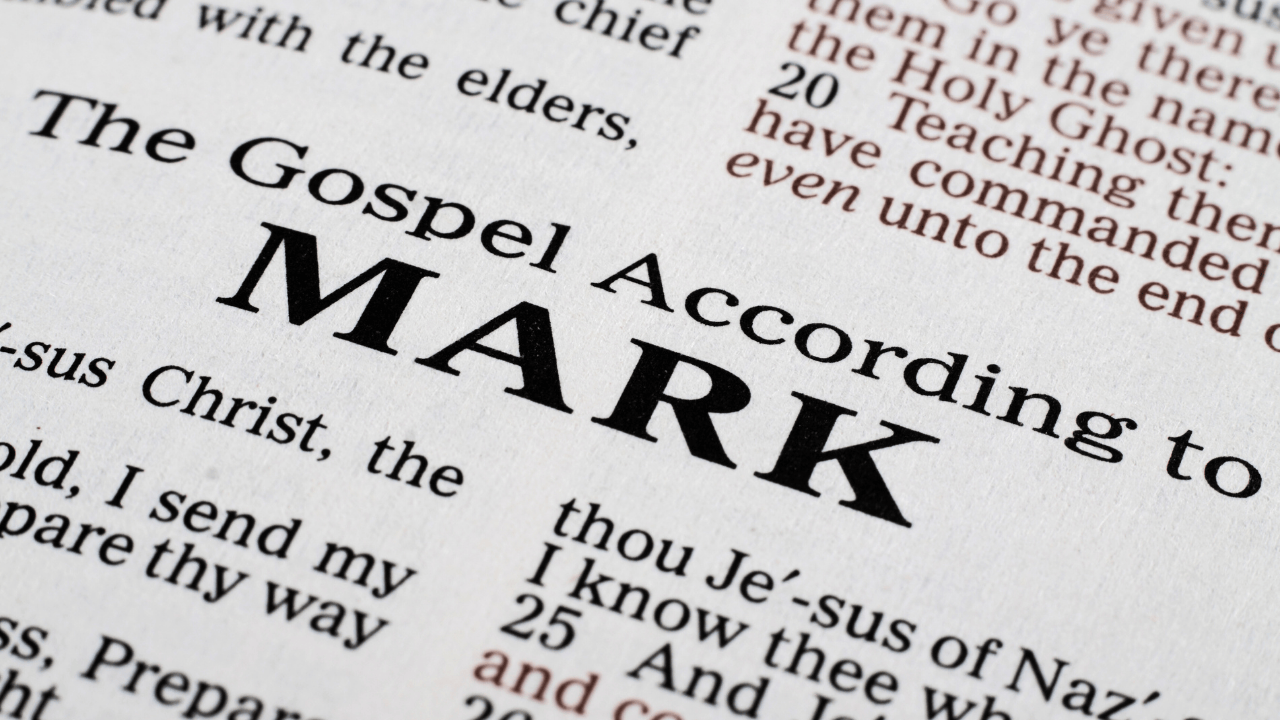
Mark's gospel is fast. He jumps right into what is central to the good news, the gospel, of Jesus. John the Baptist comes, and he is great, but his whole message is one of preparation for the greater one who would come after, Jesus. And everything John says has to do with this comparison of just how great Jesus is. We also see this through the writer of the gospel, Mark, and the apostle who was behind Mark's writing, Peter. Then we quickly move to Jesus' baptism by John and we see here the other central idea of the gospel, that this great one who has come humbles himself to associate and own the sins of humanity. Here is good news!

